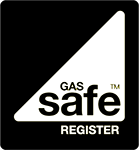
Request a Booking
Request a Callback
EV CHARGER INSTALLATION
Tailored Solutions for Homes and Businesses in Leicester and Surrounding Areas
UNLEASH THE FULL POTENTIAL OF YOUR EV
WITH MATRIX ENERGY
As the EV revolution accelerates, are you ready to be a part of it? Matrix Energy is your trusted partner for professional EV Charger Installation in Leicester and beyond. We are dedicated to providing tailored solutions for homeowners and businesses, focusing on design and technical surveys to eliminate hidden costs, saving you time, money, and potential complications.
TAILOR-MADE EV CHARGER SOLUTIONS
No Hidden Costs, Just Seamless Installation
Embrace the future with Matrix Energy, your partner in the electric vehicle (EV) revolution. As we transition to a greener and more sustainable future, having a robust and well-designed charging station for your EV is pivotal. Serving Leicester, Clarendon Park, Stoneygate, Knighton, Oadby, Evington, and Great Glen, we offer professional EV Charger Installation services. Our solutions are meticulously tailored to your specific needs, ensuring seamless installation without any hidden costs.
Customised EV Charger Installations to Suit Your Needs
At Matrix Energy, we recognise that every property is unique and so are its charging requirements. To provide the most efficient and cost-effective solutions, we conduct comprehensive design and technical surveys. These surveys assess various factors, including your vehicle model, daily mileage, charging time preferences, property’s electrical capacity, and the desired location of the charging point. This detailed evaluation allows us to tailor the charger installation to your specific needs, ensuring an optimal setup that aligns with your property layout, electrical capacity, and specific EV charging needs.
Design and Technical Surveys
A CRUCIAL STEP
While some providers may offer a standard ‘off-the-web’ price, these often come with hidden costs and complications down the line. To prevent this, CRS Electrical opts for a thorough approach, conducting detailed design and technical surveys before any installation. These surveys evaluate:
THE IMPORTANT PART
By investing in a detailed survey upfront, we help you save significant time and money in the long run by avoiding unnecessary alterations or additional work later.
Certified by the Office for Zero Emission Vehicles (OZEV)
As an OZEV-approved installer, CRS Electrical is committed to supporting the UK’s transition to zero-emission vehicles. Our participation in the OZEV grants scheme allows us to offer our customers cost-effective installation services, further aiding homeowners and businesses in their switch to clean energy.
Experience the Matrix Energy Difference
Choose Matrix Energy and get more than just a charging station. You get a comprehensive service that prioritises your convenience, cost-efficiency, and contribution to a greener planet. Our team, deeply rooted in the Leicester community, is committed to delivering best-in-class solutions for your EV charging needs. With us, you get:
1. EXPERT INSTALLATION
Our highly skilled and experienced electrical engineers ensure a seamless installation, causing minimal disruption to your routine.
2. DETAILED REPORTS
Comprehensive and easily readable reports provide you with a clear understanding of the installation process and your new EV charger’s operation.
3. OUTSTANDING CUSTOMER SERVICE
We are known for our reliable and timely customer service, always there when you need us.
Whether you’re a homeowner looking to maximise your EV’s convenience or a business wanting to provide charging solutions for employees or customers, CRS Electrical is here to drive your switch to cleaner, more efficient transportation. Join us in driving towards a more sustainable future. Contact us today for your customised EV charger design and installation needs.
Want to know more?
Click below and we’ll be in touch!
FAQs
Can I use any charger with my electric vehicle in the UK?
Most EVs are compatible with public chargers found across the UK, though Tesla cars may need an adapter for non-Tesla chargers. It’s always best to check compatibility with your vehicle manufacturer.
What does it cost to charge an electric vehicle in the UK?
The cost to charge an EV in the UK varies based on electricity rates and vehicle efficiency. On average, charging an EV is cheaper than refueling a conventional petrol or diesel car for the same number of miles.
How do I find EV charging stations in the UK?
Apps like Zap-Map and PlugShare are great for locating charging stations across the UK, showing real-time availability and updates about new station installations.
What maintenance is required for EV chargers?
EV chargers generally require little maintenance, mostly involving regular inspections to ensure cleanliness and cable integrity. Always refer to the manufacturer’s maintenance guidelines.
Is it safe to charge an EV in the rain?
Yes, charging your EV during rainy conditions is perfectly safe as EV chargers are built to be waterproof and are thoroughly tested to meet strict UK safety regulations.
How can I maximise the lifespan of my EV battery?
To maintain battery health, try to keep charging between 20% and 80% capacity and use timed charging to avoid keeping the battery at 100% for extended periods. Modern smart chargers can help manage this automatically.
Can I charge my electric vehicle overnight?
Charging an EV overnight is efficient with both Level 1 and Level 2 chargers, taking advantage of lower nighttime electricity rates in the UK.
Does rapid charging damage the battery?
Regular use of rapid charging can accelerate battery wear over time. It’s recommended to use rapid charging when necessary and rely more on slower charging methods.
What are the environmental benefits of electric vehicles and EV chargers?
EVs significantly reduce emissions compared to conventional vehicles, especially when charged from renewable energy sources. The UK’s growing renewable energy capacity makes EVs increasingly sustainable.
How should I choose the right home EV charger in the UK?
Consider the charging speed you need, budget, and the space available at your home. An electrical inspection might be necessary to ensure your home’s wiring can support the desired system. Consultation with a certified installer can provide personalised advice.
Who is qualified to install an EV charger in the UK?
A qualified electrician who has specific training and certification in EV charger installation, such as the City & Guilds 2919, is required to install an EV charger in the UK. This ensures the installation is safe and compliant with UK electrical regulations.
Can any electrician install an EV charger, or do they need special approval?
Not all electricians can install EV chargers. They need to be certified by a recognized body such as the National Inspection Council for Electrical Installation Contracting (NICEIC) or have specific qualifications like the City & Guilds 2919. It’s crucial to choose an installer who has the necessary credentials and experience with EV charging systems.
Do I need an OLEV-approved installer to fit my home EV charger?
To qualify for government incentives like the Electric Vehicle Homecharge Scheme (EVHS), your EV charger must be installed by an OLEV-approved (Office for Zero Emission Vehicles) installer. These installers have met specific standards and are authorised to install EV charging points under UK government programs.
How do I choose the right installer for my EV charger?
It’s recommended to obtain multiple quotes and check online reviews or references for potential installers. Choosing an installer recommended by your charger’s manufacturer can also ensure compatibility and adherence to warranty conditions.
ACCREDITATIONS

Gas Safe Register is the official registration body for gas engineers in the UK, Isle of Man, and Guernsey. It ensures engineers are qualified to work safely and legally on gas appliances.
Visit Site
Worcester Bosch is a renowned manufacturer of heating and hot water products, including boilers, solar water heating systems, and heat pumps.
Visit Site
Soft Touch Arts are a Leicester charity that seek to change the lives of vulnerable young people through their committed work.
Visit Site